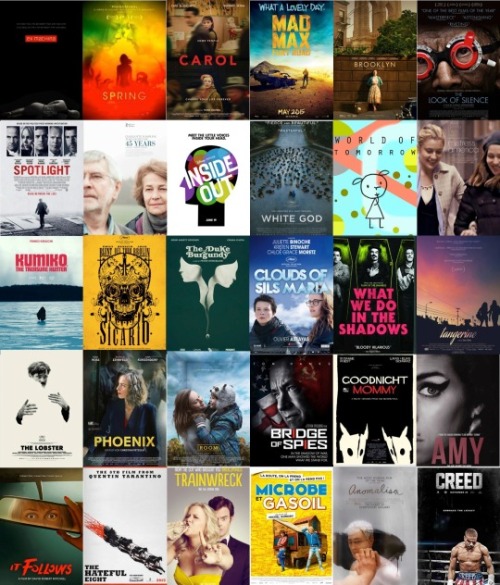
Oscar Picks, Predictions, and Protestations: 2015 Edition
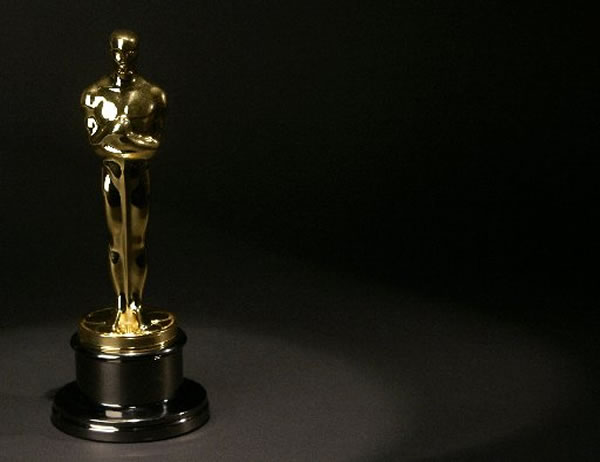
45 features, 15 shorts. Of all the nominees, I managed to watch 39 of the features and 10 of the shorts. Well short of my best years (I watched all nominees in all categories in 2010 and 2013, and all but a couple in 11/12. I’m still pretty pleased with how many I managed to fit in given that I stopped reviewing actively in August of last year, though.
Even with fewer of the total movies in my brain than in the past, this is still a fun exercise in trying to figure out the voters’ brains. Use these picks to try to win the pool at your party tonight at your own risk: my ability to get inside those brains is historically bad, given that 1) I don’t pay much attention to the Oscar oddsmaking and 2) I usually don’t want to admit that a majority will vote for certain films I find especially undeserving. (Birdman, I’m looking at you.)
Visual Effects:
Captain America: The Winter Soldier
Dawn of the Planet of the Apes
Guardians of the Galaxy
Interstellar
X-Men: Days of Future Past
Who’s going to win: Interstellar
Who should win: Dawn of the Planet of the Apes
Nolan’s noble failure is the most Oscars-y of the picks here, and I think this’ll be consolation for Nolan not making a film that competed in the higher profile awards as many might have hoped before the film came out. As many problems as I had with it, it IS visually stunning, and even more laudable given that the effects are (mostly? entirely?) practical instead of digital. I won’t be unhappy if Interstellar takes the prize, but at the same time, I think the bigger achievement is creating apes that work not just as effects, but as characters in Dawn of the Planet of the Apes.
Makeup and Hairstyling:
Foxcatcher
The Grand Budapest Hotel
Guardians of the Galaxy
Who’s going to win: Grand Budapest
Who should win: Grand Budapest
Most ostentatious use of hair and makeup may go to Steve Carrell’s prosthetic nose and Mark Ruffalo’s artificial hairline (let’s not get into those frosted tips for Channing Tatum), but Budapest takes the confectionary cake for Tilda Swinton’s transformation alone. Adrien Brody’s Kramer-esque mop is the icing.
Production Design:
The Grand Budapest Hotel
The Imitation Game
Interstellar
Into the Woods
Mr. Turner
Who’s going to win: Grand Budapest
Who should win: Grand Budapest
This one has to be even more of a lock for Grand Budapest than the previous one given that this is Wes Anderson’s usual attention to visual detail turned up to 111. Into the Woods looked far to artificial, like an intermediary between a stage set and a film, and the Imitation Game is standard issue WWII period piece. Budapest is something entirely extraordinary. Dark horse: Mr. Turner’s gorgeous naturalistic design.
Costume:
The Grand Budapest Hotel
Inherent Vice
Into the Woods
Maleficent
Mr. Turner
Who’s going to win: Grand Budapest
Who should win: Grand Budapest
Everything I said about the production design of GBH applies to the costumes as well.
Sound Mixing:
American Sniper
Birdman
Interstellar
Unbroken
Whiplash
Who’s going to win: American Sniper
Who should win: Whiplash
Who should win that wasn’t nominated: The Babadook
Big, explodey action flicks tend to have the edge in this category, and I think the academy will want to give *something* to the only best picture nominee that was a huge financial success. I think this’ll be it, at the expense of the amazing, frenzied sound mix in Whiplash.
I will make a special plea for The Babadook here, as the film which used sound most effectively of any movie I saw all year by a long, long margin. That film should be taught in classes on how to use sound to manipulate emotion and create psychological unease.
Sound Editing:
American Sniper
Birdman
The Hobbit: The Battle of the Five Armies
Interstellar
Unbroken
Who’s going to win: American Sniper
Who should win: The Hobbit: The Battle of the Five Armies
Ditto my thoughts on mixing here. Only given the scope of the sound elements that had to be created for the Hobbit, I’m going to give that one my own pick here, but the Academy is going to go with Sniper since Hobbit isn’t much loved by anyone.
Original Score:
The Grand Budapest Hotel
The Imitation Game
Interstellar
Mr. Turner
The Theory of Everything
Who’s going to win: The Theory of Everything
Who should win: The Grand Budapest Hotel
Who should win that wasn’t nominated: Under the Skin (or Inherent Vice)
Another two nominations for probably the most ubiquitous composer of the past decade in Desplat, and I think he’s going to go away empty handed yet again. Theory of Everything’s score is, like the movie, inspiration by numbers and it’ll get the sentimental vote, despite Desplat’s score for Grand Budapest being much more inventive and integral to that film.
If you want to listen to film music that will really knock your socks off (and give you nightmares), go check out Mica Levi’s Under the Skin soundtrack. And sigh a heavy sigh for Jonny Greenwood, who I think Academy voters must think of as not a “real” composer yet since he is/was a pop musician. Take heart, Jonny, Mark Mothersbaugh and Trent Reznor eventually threw off their pop stigma, you’ll get there.
Original Song:
Everything is Awesome - The Lego Movie
Glory - Selma
Grateful - Beyond the Lights
I’m Not Gonna Miss You - Glen Campbell…I’ll Be Me
Lost Stars - Begin Again
Who’s going to win: Glory
Who should win: Everything is Awesome
First up, this is one of my underseen categories. I haven’t seen the latter three nominees at all. But then again, none of those really have a chance, do they? This is all about which movie that got snubbed elsewhere will get their consolation here, right?
I’m going with “Everything is Awesome”, The Lego Movie’s earworm of an anthem, that’s actually part of the fabric of the movie and the world it creates. I’ll always default to songs that add to the movie narratively over background songs, which is what “Glory” is to Selma. All that said, I can’t begrudge Selma a win, given how thoroughly it got screwed elsewhere.
Live Action Short Film:
Aya
Boogaloo and Graham
Butter Lamp
Parvaneh
The Phone Call
Who’s going to win: The Phone Call
Who should win: Butter Lamp
The Phone Call is in english, is tasteful but emotional, deals with death, and has recognizable actors. Set and match.
I’m being dismissive, but I really do think The Phone Call is quite good, mostly because of the always fantastic Sally Hawkins. But for inventiveness and memorability, the static camera tableus in motion of Butter Lamp were most memorable for me.
Documentary (short subject):
Crisis Hotline: Veterans Press 1
Joanna
Our Curse
The Reaper (La Parka)
Who’s going to win: Crisis Hotline
Who should win: No idea
I have no opinion here, as I didn’t get to see any of the documentary shorts. Based on the descriptions this seems like a safe bet, though.
Documentary Feature:
CitizenFour
Finding Vivian Maier
Last Days in Vietnam
The Salt of the Earth
Virunga
Who’s going to win: CitizenFour
Who should win: Finding Vivian Maier
Who should win that’s not nominated: The Possibilities are Endless
I’m not in love with any of these, though I like all of them. The Vivian Maier doc struck me the most because of its detective aspect, which is something I always enjoy in a documentary, but CitizenFour seems to be the one with the most buzz and attention.
I’d have loved a nomination for The Possibilities are Endless, though, a beautifully impressionistic take on the stroke recovery of Edwyn Collins.
Animated Short Film:
The Bigger Picture
The Dam Keeper
Feast
Me and My Moulton
A Single Life
Who’s going to win: Feast
Who should win: The Bigger Picture
Disney is hard to bet against here. And Feast is a sweet and nicely made essentially silent short, but the real dazzle and emotional impact for me was in the mix of stop motion and 2D animation in The Bigger Picture that had me constantly amazed at how they accomplished what I was seeing, even as I also was completely engaged in its very human story.
Animated Feature Film:
Big Hero 6
The Boxtrolls
How to Train Your Dragon 2
Song of the Sea
The Tale of Princess Kaguya
Who’s going to win: Big Hero 6
Who should win: The Boxtrolls
Who should win that’s not nominated: The Lego Movie
I saw all of these except for Song of the Sea, which disappointed me as I was a fan of Tomm Moore’s Secret of Kells. And passing over the obvious snub of the hilarious and beautifully realized Lego Movie, my vote would go to The Boxtrolls, out of my love for stop motion and it being a fun adventure. That said, I did really like Big Hero 6, so can’t be disappointed if it wins. Of course, Dragon has a very good chance here, and while I enjoyed that fine, it’s at the bottom of my ranking of all of these.
Film Editing:
American Sniper
Boyhood
The Grand Budapest Hotel
The Imitation Game
Whiplash
Who’s going to win: Boyhood
Who should win: Whiplash
Editing together 12 years of footage into a coherent narrative is a herculean task and deserves recognition, and I’ll be happy if it takes home the prize. But Whiplash is a dizzying experience in all the best ways, and a big part of that comes down to the editing, which heightens the chaos in a sonically and emotionally chaotic movie.
Cinematography:
Birdman
The Grand Budapest Hotel
Ida
Mr. Turner
Unbroken
Who’s going to win: Birdman
Who should win: Mr. Turner
Emmanuel Lebuzki’s work shooting the constant fluidity of Birdman is the primary reason to see this mostly empty film, apart from Keaton’s performance, and I’d be inclined to hand it the award myself even givne my mixed feelings on the movie…if not for the existence of Mr. Turner, in which Dick Pope takes a painterly approach to digital cinematography and makes perhaps the most gorgeously shot film made without film yet in the young history of digital cinema.
Foreign Language Film:
Ida (Poland)
Leviathan (Russaia)
Tangerines (Estonia)
Timbuktu (Mauritania)
Wild Tales (Argentina)
Who’s going to win: Ida
Who should win: Ida
Who should win that wasn’t nominated: Force Majeure
I’ve heard talk of Wild Tales being a possible winner here, but I don’t know that it’s gravely black comedy is going to play that well with voters, as entertaining as I might have found it. I think Ida and Leviathan have a much better shot. (I didn’t see Tangerines or Timbuktu.) Leviathan’s trenchant criticism of both religion and Russia’s repressive government should play well. It’s easy to vote for a movie that takes very pointedly puts a picture of Vladimir Putin on the wall to highlight the fact that the character who has it on the wall is morally repugnant. Ida, however, has the lighter touch, the more human story, and higher profile due to it also being nominated for its gorgeous black and white cinematography in another category.
All that said, Force Majeure is a powerhouse of an experience, and I can’t for the life of me figure out how it didn’t even garner a nomination.
Adapted Screenplay:
American Sniper
The Imitation Game
Inherent Vice
The Theory of Everything
Whiplash
Who’s going to win: Whiplash
Who should win: Inherent Vice
Who should win that wasn’t nominated: Under the Skin
The Imitation Game is probably the slight favorite here, but screenplay is so often the place to reward upstarts, that it feels like a bad bet to go with the establishment pick of this bunch. That disqualifies Theory of Everything, too, though that’s also disqualified for being everything that’s wrong with biopic screenplay writing. The Imitation Game is also going to have a problem given all the bad press over the past month about how it betrays not just the facts of many of the lives it adapts, but also the spirit of them. I think it’s a well constructed screenplay, but I can’t help but think less of it the more I read the actual events.
In any case, Whiplash is, I think, going to take it for giving JK Simmons all those great words to say that will end up netting him the best supporting actor award. I think Inherent Vice is a stronger work of adaptation, taking a difficult source book and making it sing – with all its confusion and trippiness – on screen.
And I’ll also put in another plug here for Under the Skin, which had no chance given how much of it is dialogue free and how much of the dialogue that was there was improvised, but as an exercise in showing just how to tranfer literature to an entirely different art form, it’s unmatched this year.
Original Screenplay:
Birdman
Boyhood
Foxcatcher
The Grand Budapest Hotel
Nightcrawler
Who’s going to win: The Grand Budapest Hotel
Who should win: The Grand Budapest Hotel
GBH was tied for most nominations, but isn’t going to take home any of the most high profile ones, so in addition to the awards for its visual aesthetic, it’ll win for its snappy screwball dialogue. I just really hope that Wes Anderson’s acceptance speech is just as funny as the one he gave when he won the Writers Guild awards last week.
Supporting Actor:
Robert Duvall - The Judge
Ethan Hawke - Boyhood
Edward Norton - Birdman
Mark Ruffalo - Foxcatcher
JK Simmons - Whiplash
Who’s going to win: Simmons
Who should win: Simmons
The slam dunkiest of slam dunks for this Oscar, and who am I to argue? (Though Mark Ruffalo is VERY good, probably the best thing in Foxcatcher.) Simmons goes from character actor who is that guy you always recognize in stuff to this generation’s Sergeant Hartman.
Supporting Actress:
Patricia Arquette - Boyhood
Laura Dern - Wild
Keira Knightley - The Imitation Game
Emma Stone - Birdman
Meryl Streep - Into the Woods
Who’s going to win: Arquette
Who should win: Arquette
Arquette is really the heart of Boyhood, and that’s going to be recognized here. I’d be shocked if she didn’t get this one.
Best Actor:
Steve Carell - Foxcatcher
Bradley Cooper- American Sniper
Benedict Cumberbatch - The Imitation Game
Michael Keaton - Birdman
Eddie Redmayne - The Theory of Everything
Who’s going to win: Keaton
Who should win: Keaton
Who should win that wasn’t nominated: Ralph Fiennes for Grand Budapest or David Oyelowo for Selma
Tough call for who’s going to win between Keaton and Redmayne, and the challenging/transformative aspect of Redmayne’s turn seems tailor made for an Oscar. But Keaton’s performance just seems more nervy, and while I wouldn’t call Redmayne’s performance an imitation, it does certainly have that aspect. I just found more depth to what Keaton was doing. Ironic considering how shallow Birdman is.
Wildcard working against Redmayne: all the unintentional laughs he’s getting for his performance in Jupiter Ascending.
But really, this shouldn’t be the discussion. This should be a neck and neck race between not those two, but between Fiennes and Oyelowo, both of whom are better than this entire field.
Best Actress:
Marion Cotillard - Two Days, One Night
Felicity Jones - The Theory of Everything
Julianne Moore - Still Alice
Rosamund Pike - Gone Girl
Reese Witherspoon - Wild
Who’s going to win: Moore
Who should win: Pike
I’m a little sad that Moore is finally going to pick up her award for such a forgettable little PSA of a film. Let’s not trivialize her performance; it’s powerful, it’s considered, it’s nuanced, it’s a tiny masterpiece just like just about every time Moore steps in front of a camera. But as much as she transcends the material, the material is still resolutely pedestrian.
Pike’s performance also transcends the material, but in the same way that the entirety of Gone Girl transcends itself. This is pulp fiction all the way, but done with such style and class that it’s easy to forget just how lurid it all is. And that’s what makes it such an interesting film, and Pike is the greatest example of it.
My sentimental pick here though is Marion Cotillard, who gives a performance far better than the one she actually won for back in 2007 for La Vie en Rose, and in a much more challenging role. She has to basically find new ways to play the same scene a dozen different times, and does it, giving life to a scenario that could easily have become tedious.
Directing:
Alejandro Iñárritu - Birdman
Richard Linklater - Boyhood
Foxcatcher - Bennett Miller
The Grand Budapest Hotel - Wes Anderson
Morten Tyldum - The Imitation Game
Who’s going to win: Iñárritu
Who should win: Anderson
I’ve resigned myself to the fact that the visual flash of Iñárritu in Birdman is going to win out over the two people here I’d much rather see win.
My pick is Anderson, because GBH is my favorite film of the year, and I think that’s really his achievement at the end of the day. Few directors maintain as much rigorous control over every image and every performance onscreen as Anderson, and this is his movie through and through.
But realistically this is between Iñárritu and Linklater, and I just think Boyhood is a much greater achievement directorially. Even just beyond the logistics of telling a story like this over such a long period of filming, the greatest challenge is to know, as a director, the tone of the performances you’re looking for and keeping those consistent over more than a decade. That’s a true feat, and is in line with what has always been Linklater’s greatest skill: his humanism, and translating that into storytelling onscreen.
Best Picture:
American Sniper
Birdman
Boyhood
The Grand Budapest Hotel
The Imitation Game
Selma
The Theory of Everything
Whiplash
Who’s going to win: Boyhood
Who should win: The Grand Budapest Hotel
Here’s where my sentimentality gets the better of me. I can see past my attachement to GBH long enough to know that it has no chance of winning.
But despite the gnawing feeling in my gut that Birdman is going to win, I still can’t not pick the film that I WANT to win out of the two that have the best shot at it. So I’ve gotta go with Boyhood.
And look: I don’t hate Birdman. I had a good time watching it. It’s funny, it’s entertaining, it’s visually dazzling. But it’s also empty-headed, faux-profound in all the worst ways, and even worse than all that, it really thinks that its Super Important and Has Things to Say That You Should All be Listening To.
Boyhood has a central character who thinks he’s profound in all the ways that adolescents think they’re profound. But it’s a coming of age story, and Linklater and the movie itself are smart enough to know that kids are full of shit when they wax philosophical and adults aren’t any better. Basically we’re all going through this life trying, and stumbling, as we try to live and be happy. It’s just a long snapshot of that process, and is profound in its simplicity.
Birdman, on the other hand, isn’t saying anything any more mature or deep than a freshman liberal arts major, but thinks that it has capital-A Answers. It’s a fun movie when it forgets about all that, but for more than half its running time, it’s busy congratulating itself for being important.
So I’ll take Boyhood, and inevitably find myself really angry that a movie that I don’t even hate ends up winning later tonight.

The Best of 2014
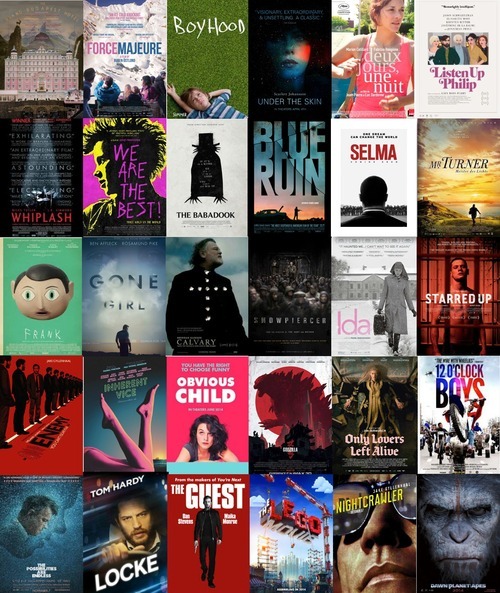
But I didn’t slow down the movie watching; in fact, I watched more movies in 2014 than I did the prior year, proving once again to myself that the best cure for chaos is the centering influence of the cinema. So while, as usual, there are undoubtedly titles missing from this year’s list, as there are every year, I feel like I got a lot of great stuff in.
More importantly, in the face of the usual declinist arguments that come along every year, I really don’t feel badly at all about the state of cinema. The ease with which I came up with 30 movies I loved (and ran out of room for ones that I still liked a whole lot) speaks to yet another strong year.
Looking over this list, a few things that occur to me:
The blockbuster isn’t in bad shape, and there are a lot of great spectacle-oriented movies available. The worried articles bemoaning the number of franchise movies among the top grossing films of the year make some important points, but franchised movies aren’t inherently bad. Four of the top-twenty grossing movies of the year are on my list (and the year’s #1 moneymaker just barely missed the list), and I’ll defend each of them as fantastic movies by any measure.
There’s still plenty of room for experimentation, even given how safety-conscious the studios are about their investments. Whether that means filming your movie over the course of 12 years, or making your movie with only one actor sitting in a car for an hour and a half, or ending your movie with a gigantic, unexpected, unexplained tarantula confronting your protagonist before the cut to black, there’s plenty of opportunities to see films that are expanding the medium and your mind.
If you think there’s just nothing good out there, you’re not trying hard enough. We’re living in the future here, people. By and large, we can watch what we want when we want to, and that capability often exists whether you live in a big city, or the smallest of towns. VOD and streaming have the potential to make for a much more level playing field: it makes it so much easier for us to see movies, and it offers the potential for a real expansion of the variety and artfulness of what’s out there for us to choose from.
It offers all those things, IF we’re willing to put in the work. This isn’t hard work, but it involves something that we all did automatically once upon a time. Before the internet, and before the industry figured out how to market their product with laserlike precision, we had to go looking for movies. We read reviews. We showed up at theaters (some of which, even in small towns, even regularly had revivals and foreign films) and picked movies we hadn’t heard of. When we went to video stores, we browsed. We asked questions. We were more likely to engage in word of mouth.
But I find I talk to a lot of people who haven’t heard of a lot of smaller movies that I think they might have been more likely to have known about even just 10 years ago, and part of that is because we’re so used to having curated our media feeds and then just leaving them be. We’re not active consumers in the way we were, even though being an active consumer is easier than it ever was before. But since things land in front of our eyes with no effort, we stop putting the effort in. Stuff slips through the cracks that way.
So find a film site you like and check in there weekly to read about things you know nothing about. Add a film or even just a general pop culture podcast into your rotation. Engage with the art. Demand better art. Demand challenging biopics like Mr. Turner over bland oscar-baity ones like The Theory of Everything. Reward documentaries that don’t just offer talking heads, like The Possibilites are Endless or 12 O'Clock Boys. Seek out the movies that are more than diversions, that initiate tough conversations, like Force Majeure, Enemy, Calvary, and Under the Skin. Find films that are smart about the genre templates they’re built on, and that either play those familiar tunes with virtuoso skill (The Guest and Gone Girl), or just blow the template up from the inside (Blue Ruin).
Movies are art and commerce all rolled up into one. Don’t just buy what you’re being actively sold, and eventually the shelves will have a lot more variety and quality available.
Here are my favorites of 2014; if I wrote anything about the film, I’ve linked to that piece from the list:
The Grand Budapest Hotel
Force Majeure
Boyhood
Under the Skin
Two Days, One Night
Listen Up Philip
Whiplash
We Are the Best!
The Babadook
Blue Ruin
Selma
Mr. Turner
Frank
Gone Girl
Calvary
Snowpiercer
Ida
Starred Up
Enemy
Inherent Vice
Obvious Child
Godzilla
Only Lovers Left Alive
12 O’Clock Boys
The Possibilities are Endless
Locke
The Guest
The Lego Movie
Night Crawler
Dawn of the Planet of the Apes

NPR Review: What If

Romantic comedies didn’t always carry with them the air of immediate dismissal, that eye-rolling weariness born of dozens of interchangeable boy-meets-girl plots and posters featuring stars playfully leaning into or on one another. Romance at the movies wasn’t always overfilled with cliches, stuffed with safe jokes heard a hundred times before. The rom-com can be a place for actual characters instead of cardboard theater-lobby displays, right? People you actually want to see get together for reasons other than the fact that that’s what’s supposed to happen in these movies?
What If doesn’t ask “what if” that were true. It just answers with a confident “yes.”
The film was originally titled The F Word, and it still carries that title in most markets that aren’t the U.S., making one wonder just how easily offended the distributor thinks we are (the F-word in question is “friends”). Fortunately, the newer, blander title is really the only thing generic about What If. Adapted and expanded by screenwriter Elan Mastai from a fringe festival play by Canadian playwrights TJ Dawe and Mike Rinaldi, the film manages a neat trick of sticking close to formula while still being unexpectedly fresh.
Part of that is…
Continue reading my review over at NPR.
Tags | npr | review | Daniel Radcliffe | Zoe Kazan | Adam Driver | comedy | romance | romantic comedy | romcom | 17 notes

NPR Essay: Endless Summer Turns 50

“This is Bruce Brown, thank you for watching, I hope you enjoyed my film.”
That line, sounding a little like a proud eighth-grader closing out a book report he felt was particularly insightful, is the last piece of narration in the landmark 1964 surfing film The Endless Summer (which didn’t receive its nationwide theatrical release until 1966). It’s a little amateurish, eye-rollingly hokey, and yet irresistibly endearing in its aw-shucks wholesome sincerity. It’s those qualities that have allowed the film to improbably endure as the most influential adventure sports documentary ever made, and warrant another in a few dozen theaters nationwide to celebrate a half-century since it first screened.
Documentaries about sports like surfing, skiing, snow and skateboarding, or mountain climbing are a niche market, often screened only at specialized film festivals before living out their existences being played in the background at ski lodges or in the homes of enthusiasts. Endless Summer didn’t invent the genre, but it was unique in its huge crossover appeal, sparking popular interest in surf culture that has endured at the movies ever since, whether in direct descendants like the 2003 documentary Step into Liquid (directed by Brown’s son, Dana), or Keanu Reeves’ undercover surfing “EFF…BEE…EYE…Agent!” in 1991’s Point Break.
Many of the surfing movies that rode Endless Summer’s wake presented surfing as the apotheosis of living-on-the-edge cool, with ripped dudes and lean ladies speaking a language all their own while devoting their days to the romantic pursuit of the perfect wave. (Spoiler alert: Brown & Co. found it while filming the movie in 1963, and it’s in South Africa.) But Endless Summer has…
Continue reading the rest of my piece over at NPR.
Tags | essay | NPR | Retrospectives | summer | surfing | documentary | sports

NPR Review: Wish I Was Here
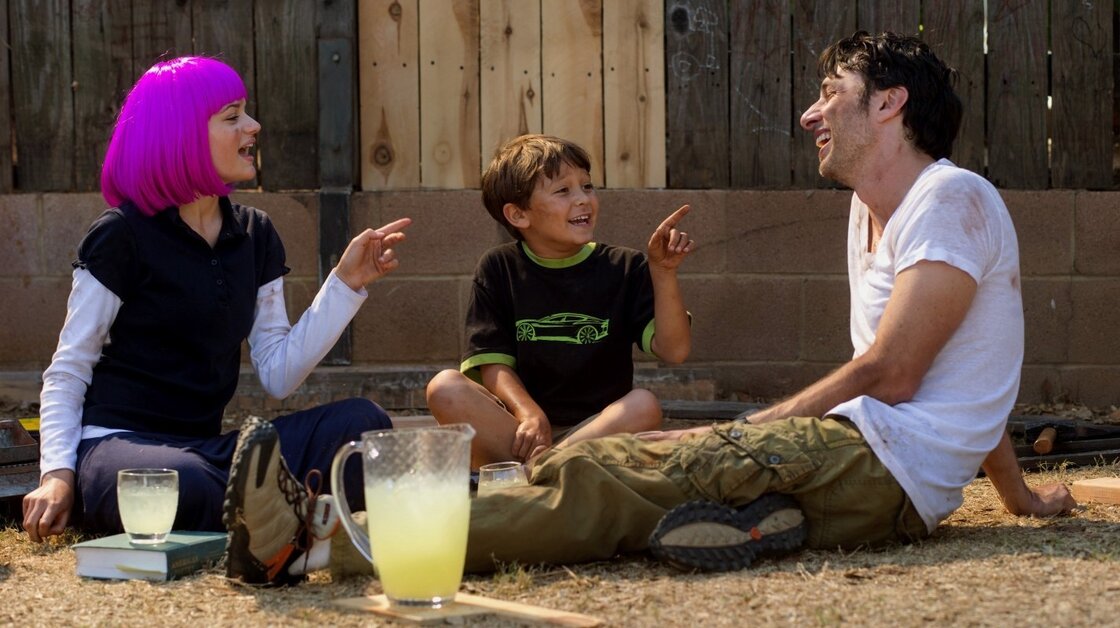
It seems pretty clear what Zach Braff is up to. Ten years after his breakout debut as a writer/director, Garden State, Braff has returned with Wish I Was Here, a partially Kickstarter-funded film that is neither a sequel nor a remake, but feels as much like both of those as a film with no narrative connection to Garden State possibly could.
In both movies, Braff plays a struggling actor at an existential crossroads. In both movies, his mother is dead, and he must deal with a disapproving father. In both, the love of an unfailingly supportive woman is a piece of his salvation. Both are soundtracked with gentle indie and classic rock tunes that cover even the present in a film of dreamy instant nostalgia. The big difference is that this time, he’s married with children, and his second parent is also not long for this world. Braff has taken the same house and redecorated it with the concerns of a guy staring down the latter half of his thirties rather than his late twenties.
It’s not much of a stretch to imagine that in 2024 we can look forward to Braff’s meditation on middle age, as he plays a journeyman actor approaching 50 and no longer able to nail down work, paying alimony to his ex-wife, and struggling to put his kids through college while he awaits the results of a biopsy on his worrisome enlarged prostate. It’ll be like Richard Linklater’s Before series, only for anxious-but-souful dudes.
It’s not that the issues Braff is dealing with are…
Continue reading the rest of my review over at NPR.

NPR Review: Dawn of the Planet of the Apes
![]()
It’s the end of the world as we know it, and the apes feel fine. As for humanity? Not so much, but Dawn of the Planet of the Apes doesn’t care so much about their feelings. This dawn is well past mankind’s twilight.
The excellent 2011 reboot of the Planet of the Apes series ended with a map hinting at the worldwide spread of a man-made contagion. The retrovirus used to make lab apes smart in that film was, it turned out, deadly to humans. A more generic Hollywood franchise might have followed that film up with mankind’s collapse, focusing on the chaos of our desperate attempts to keep society intact as the apes grew stronger and smarter and more organized, hidden away in the forests. But this sequel is anything but generic.
In fact, the film skips over the specifics of that collapse almost entirely, only referencing it through an opening credits audio montage of news reports describing society’s rapid spiral into radio silence. Then director Matt Reeves, taking over the franchise from Rise of the Planet of the Apes director Rupert Wyatt, drops us into a now well-established ape society a decade down the line.
What few humans are left are…
Continue reading the rest of my review over at NPR.
Tags | NPR | review | science fiction | sci-fi | motion capture | matt reeves | Andy Serkis | apes | sequel | post-apocalyptic | contagion

NPR Review: Tammy
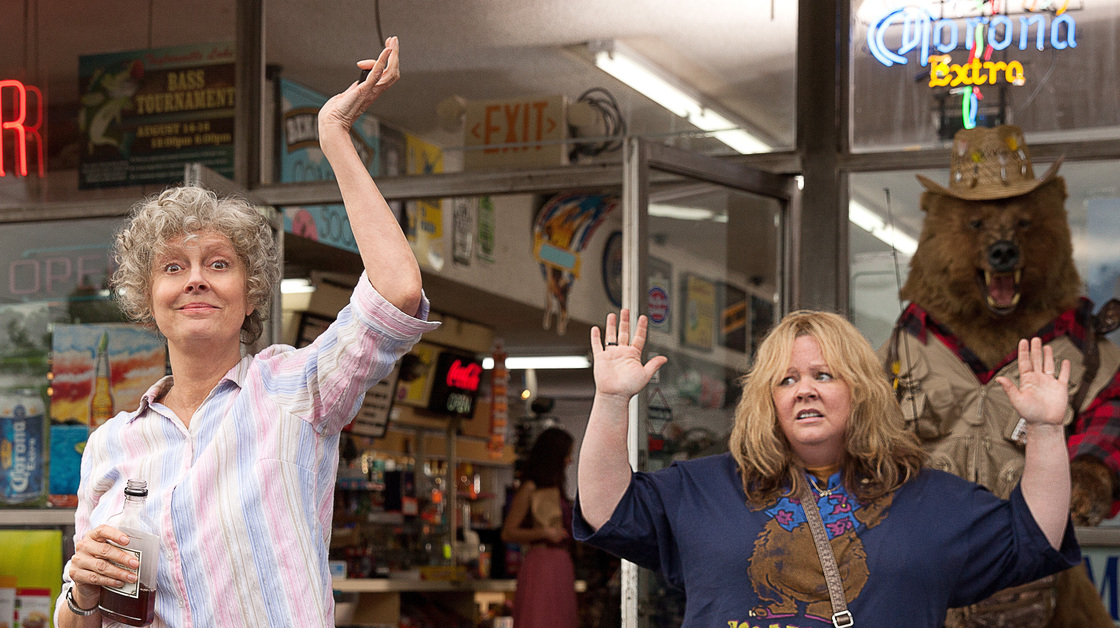
Think of Melissa McCarthy playing Megan in Bridesmaids, and you may first remember her defecating in a sink, or driving a minivan full of stolen puppies, or brazenly propositioning an air marshal. McCarthy stole the show with a talent for profanity and pratfalls, but it’s a reflective one-on-one scene playing impromptu life coach to Kristen Wiig’s character that solidified her star-making performance. For that scene, she dropped the clownish shtick for a real human moment that made Megan into a character, not just a caricature.
Tammy, McCarthy’s co-screenwriting debut with her husband, Ben Falcone (who directs for the first time), looks to mine that same dichotomy. McCarthy plays the title role, a slovenly small-town fast-food worker who loses her job, her car, and her husband in the first 10 minutes and spends the rest of the film trying to find some meaning in her broken life with the help of her alcoholic, pill-popping grandma Pearl (Susan Sarandon).
But for the first 20 minutes or so, McCarthy and Falcone seem to have misjudged the best uses of McCarthy’s talents to epic proportions. When she turns her performance up to 11, she doesn’t just demand the spotlight; she creates her own. That allowed her to steal scenes in Bridesmaids, or work effectively as a duo with Sandra Bullock in last year’s The Heat, because there was the constant push and pull of her performance against other strong and contrasting ones.
But the opening scenes of Tammy never
Continue reading my review at NPR.

Filmspotting’s Best of 2014 (So Far)

The guys over at Filmspotting were kind enough to ask me for my favorite movie of this year so far for this week’s episode. Keeping with longstanding Filmspotting tradition, I cheated. You can hear me talk about my pick(s) at 1:18:54 in the podcast.

NPR Review: Snowpiercer

“All things flow from the sacred engine…The engine is forever.” The passengers on the titular train in Bong Joon-ho’s grim, post-apocalyptic sci-fi tale essentially deify the locomotive that is their salvation. This “rattling ark” carries the last remainders of humanity, after an attempt to reverse global warming goes terribly awry, plunging the planet into an extinction-event deep freeze. Extinction for all but those on this endlessly circling, perpetual-motion-driven train that can’t stop, or else these few survivors will meet the same fate. When the movie begins, they’ve been running non-stop for 17 years.
There’s nothing subtle about the allegorical implications of this messianic express, nor any of the other metaphors piled up like the ice and snow the train blasts through relentlessly. For the survivors, this technological marvel has become a religion, and as such, dictates appropriate behavior for its acolytes – be they willing followers or not. Science and religion become blurred here, both flawed, but flawed via their filtration through humankind. Even near extinction, humanity finds ways to continue perpetuating cruel class systems and authoritarian oppression of the many to benefit the few.
So it is that those designated poor live in the tail of the train in absolute squalor, sleeping on top of one another and subsisting on gelantinous brown “protein blocks.” (The revelation of their contents, while not people, still packs a disgusting Soylent Green-style shock.) They’re regularly beaten, arbitrarily tortured, and punished to maintain order, As one moves up towards the front…
Continue reading the rest of my review over at NPR.
Tags | npr | review | Bong Joon-ho | Chris Evans | Tilda Swinton | John Hurt | science fiction | sci-fi | post-apocalyptic


